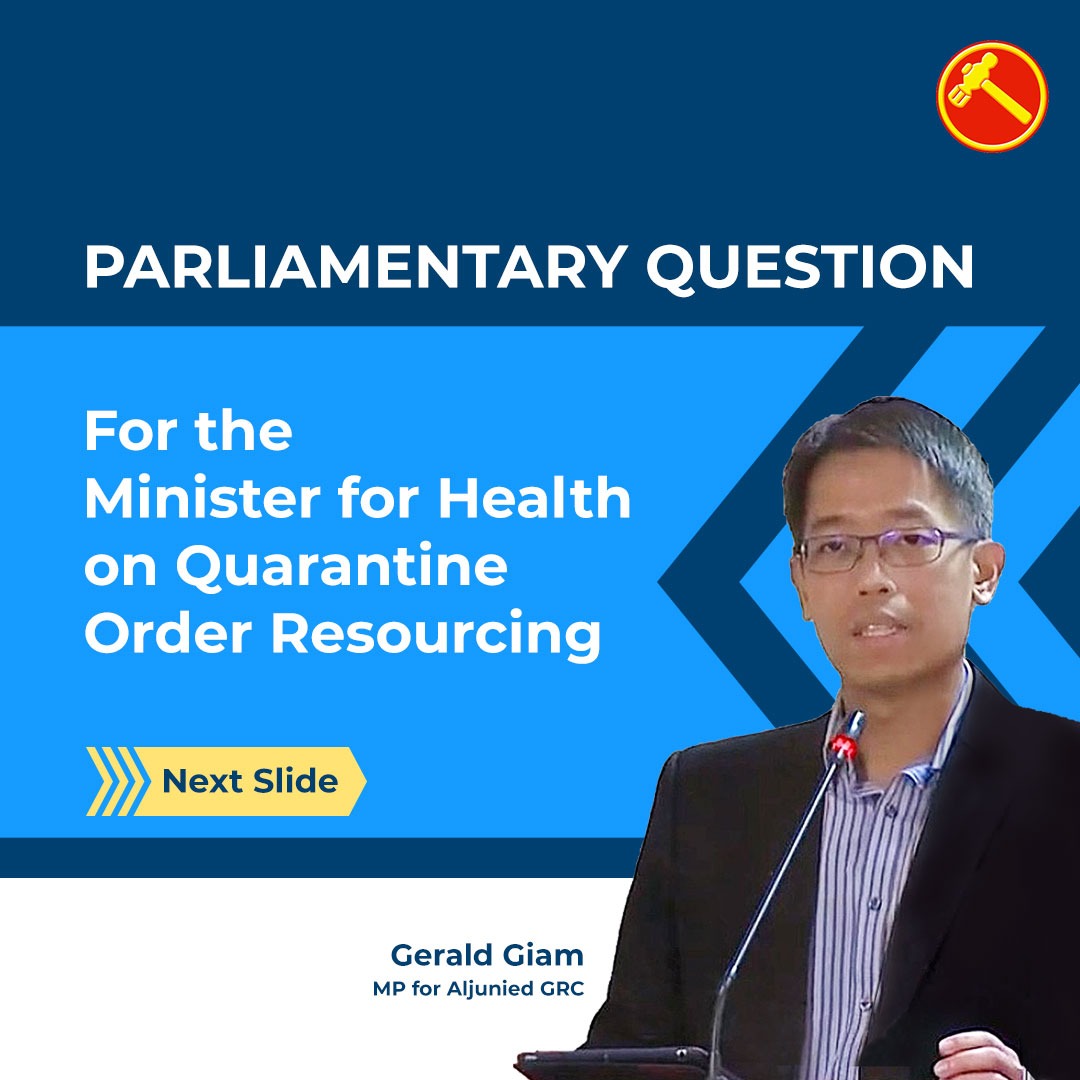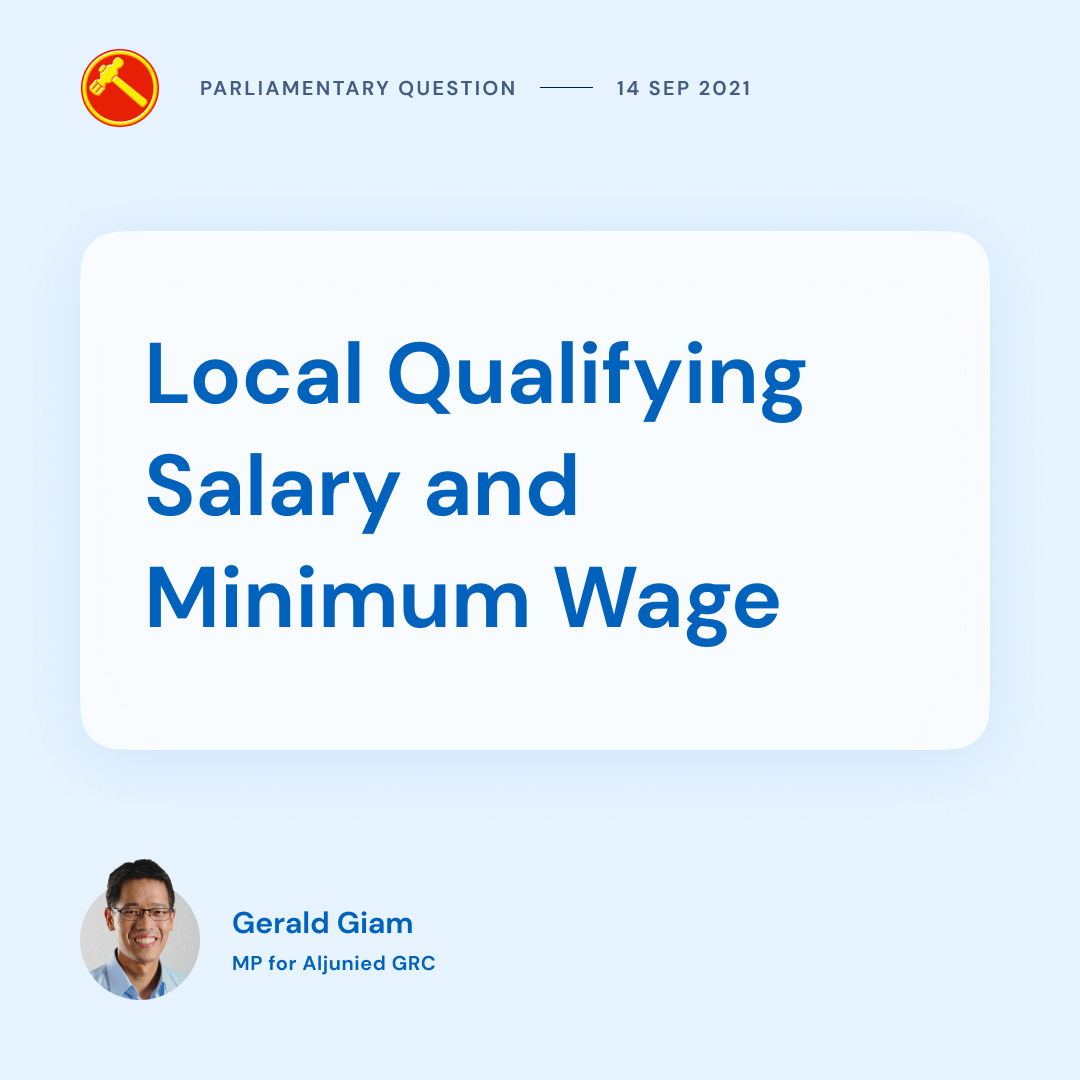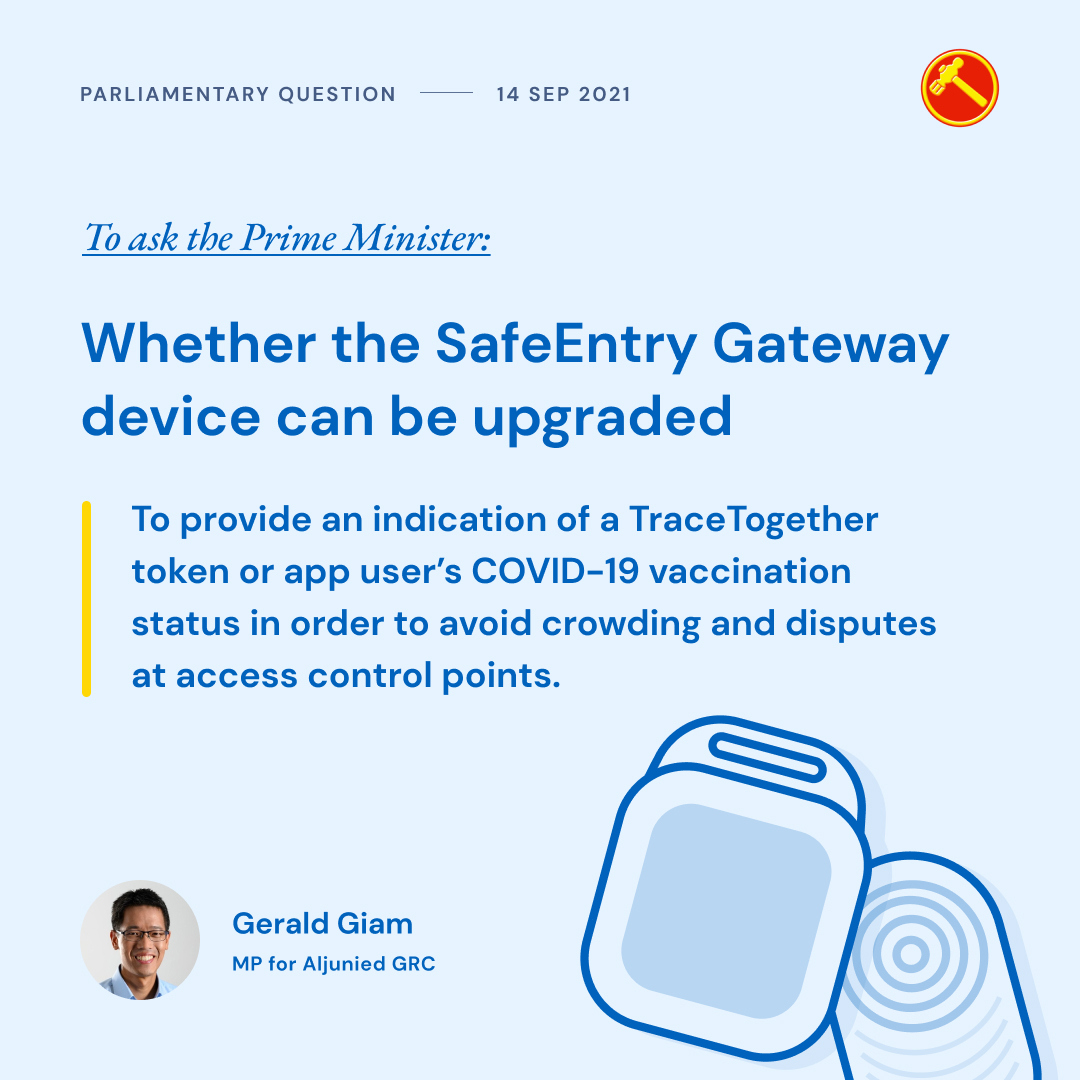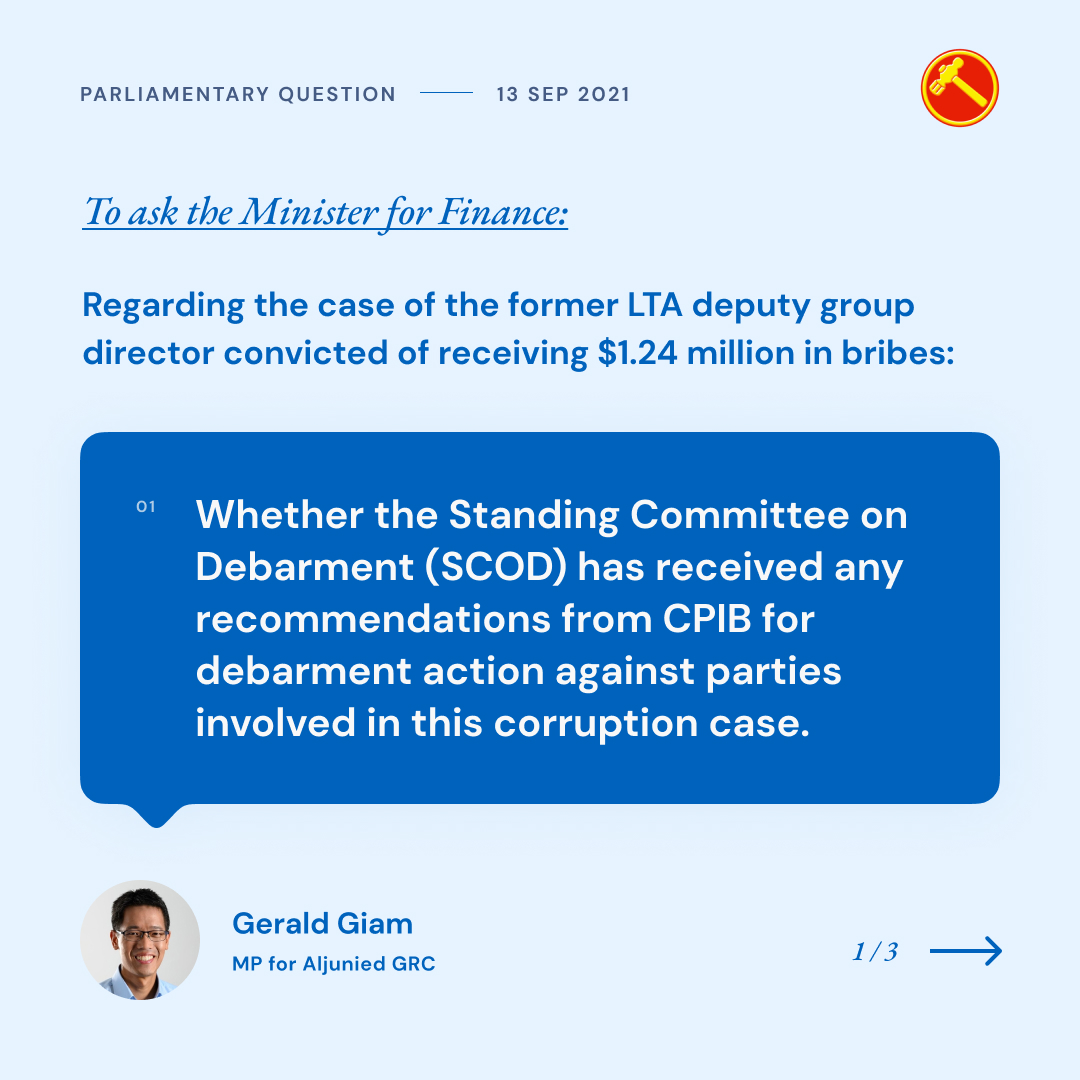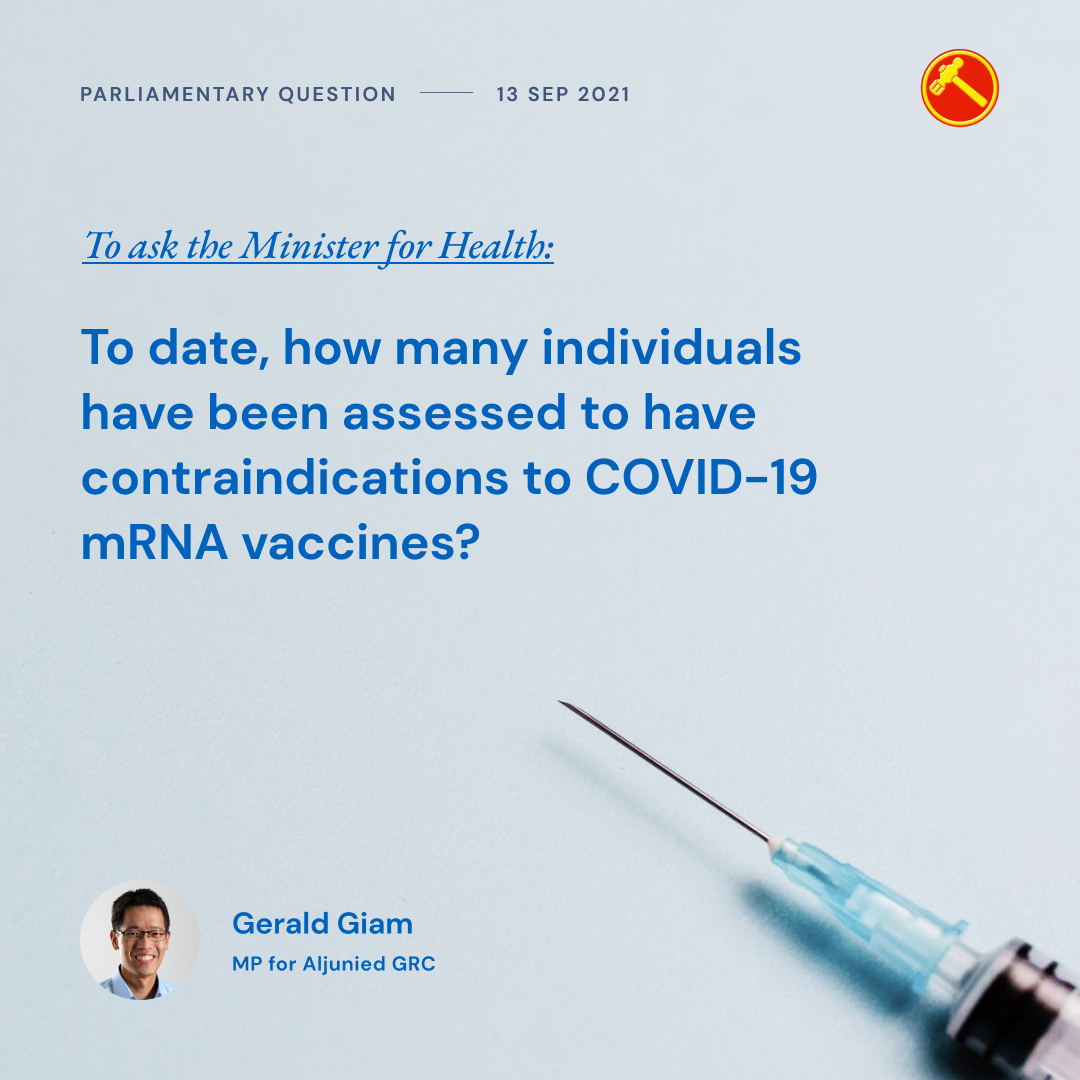This is a speech I made in Parliament on 14 September 2021 on the Jobs Debate.
Mr Speaker, we are debating today about how to create an environment that can provide better jobs and improved livelihoods for our fellow Singaporeans.
The information and communications technology (ICT) sector has grown more than three-fold over the last two decades, and employs well over 150,000 people. It has one of the highest proportions of PMET vacancies that employers say they are unable to fill with locals. Consequently, the industry also employs among the largest proportion of foreign professionals.
Before continuing, I would like to declare my interest as a founder and director of a local IT solutions and consulting company. My conversations with people in the industry and my observations as an IT practitioner over the past twenty years inform the policy proposals that I am advancing today.
The tech industry plays a critical role in Singapore’s economy and our relevance to the world. My speech will focus on skills and employment issues surrounding this industry, although some of these issues will be similar to those also faced in other industries. I will analyse the reasons for the skills gaps and manpower shortage in the ICT sector; suggest ways in which the education system can be re-orientated to play a greater part in narrowing this gap; and propose ways the Government can address some of the imbalances that Singaporean professionals encounter in the workplace vis-à-vis foreign professionals.
Reasons for the manpower crunch in the ICT industry
We constantly hear employers complain that while there are many job opportunities in the industry, there aren’t enough suitable professionals, both local and foreign, who have the skills to fill those positions. On the other hand, some Singaporean IT professionals have shared with me how they have been passed over for employment or promotions despite their best efforts to attend training and improve themselves.
Singapore is an attractive work destination and often a stepping stone for foreigners. Many are willing to work longer hours at lower wages to pick up skills and experience, before moving on to countries like the US, Canada and Australia. When I was a senior consultant at a multinational technology consulting firm, I saw many resumes of experienced foreigners seeking junior positions just to get hired.
The admission of so many entry-level foreign ICT professionals over the past 20 years and the commoditization of core skills such as computer programming has put downward pressure on wages in this industry. Any Singaporean starting out as a software developer would be competing with many similarly-skilled foreigners for jobs and promotions. This, coupled with the perception of crony hiring and discrimination against locals, prompted many Singaporeans over the past two decades to veer away from the ICT industry in favour of other sectors, leading to an even greater dearth of talent in this industry.
In the past few years, with the growth in data science, robotics and artificial intelligence, the demand for deep tech skills has increased dramatically. Companies are now willing to pay top dollar for data scientists and cybersecurity specialists. The NUS graduate employment survey found that fresh graduates from the School of Computing have the highest gross monthly salary among all graduates, with the 75th percentile earning $6,316 — higher than doctors, lawyers and business graduates. This reflects both the high demand and short supply of such graduates.
The Minister for Manpower said in July that 6,000 jobs remain unfilled in the infocomm sector and that there aren’t enough locals to fill the available jobs. In an interview last year, the Minister in-charge of the Smart Nation Initiative said that the infocomm space will require 60,000 more professionals over the next three years. An Amazon Web Services (AWS) report earlier this year highlighted that Singapore will need an additional 1.2 million digital workers by 2025 to remain competitive.
Yet, the supply of local tech talent is not keeping up. Replying to my Parliamentary question on 26 July, the Minister for Education said that the number of places in information and digital technologies undergraduate degree courses in local universities increased from 800 in 2010 to 3,100 last year.
This is still not going to solve the manpower crunch in this industry. With 3,100 graduates and 20,000 new tech jobs created a year, our local graduates won’t be able to fill even a fifth of these roles. This will lead to a greater demand for foreigners to make up the shortfall. The pattern of overdependence on foreign professionals will continue. While it is laudable that so many tech jobs are being created, how much does this benefit Singaporean workers if our people are not equipped with the skills to fill them? It will lead to disappointment both by the companies investing in Singapore and our own people. We should have started a bigger push to encourage and enable more students to study IT two decades ago.
Re-orientating our education system
Be that as it may, there is now an urgent need to re-orientate our schools to prepare Singaporean students for career opportunities in technology, so as to create a stronger pipeline of local talent.
Students who are interested in working with computers should be encouraged early to pursue IT as a course of study and an eventual career.
Primary schools should introduce all students to computational thinking and basic coding as part of their core curriculum from primary 1, although it should not be made an examination subject, as this may kill interest in it. This could spark their early interest in tech and will help them and their parents choose suitable secondary schools to further their interests. We would not be alone in doing this. Estonia, which is recognised as one of the most advanced digital societies in the world, started teaching all first graders to code almost a decade ago.
Currently only 22 secondary schools offer computing as an O level subject and this is available only from secondary 3. Moving forward, all secondary schools should offer computing as an O level subject, and it should be extended to the N levels.
Computing, just like history, geography and literature, should also be taught from Sec 1, so that all students can try their hand at it and make an informed decision at the end of Sec 2 if they want to pursue it further at the Upper Secondary level.
Schools should develop programmes and mentorships to widen students’ exposure to careers in technology, particularly those from less privileged backgrounds and also girls, given the traditionally lower female participation in the industry. More scholarships and grants should be awarded to students who choose to study computing. Tertiary institutions should connect with industries to showcase careers in tech and encourage students to pursue them.
Because there are now so few computer science degree places in our local universities vis-à-vis the demand, we are seeing cutthroat competition for admission and many qualified applicants are being denied places.
Take the School of Computing in NUS, for example. The A level subject prerequisites for computer science (CS) courses are a H2 pass in computing, mathematics, further mathematics or physics, or a good pass in H1 mathematics. This sounds quite achievable, until we look at the indicative grade profiles of applicants offered places last year: Both the 90th and the 10th percentile of applicants offered places scored 4 A’s (AAA/A) for their A levels — essentially, perfect scores. I doubt tech companies really need students who aced all four content subjects in junior college. Setting such a high bar for admission could mean missing out on many students who were initially interested in pursuing a tech career, but may have decided to switch their focus to other industries after failing in their bid to study CS at local universities.
Institutes of higher learning should move more quickly to increase their intake of computer science majors, and should admit more Singaporeans who can demonstrate a passion for technology and meet the prerequisite standards for the course. Institutes of Technical Education (ITEs) can also be a source of local tech talent. Tech is, after all, not the exclusive domain of university or poly graduates.
To be clear, I am not calling for a lowering of standards just to admit more students, but an expansion of opportunities to study computer science.
Minister Lawrence Wong said in his speech earlier that relying on a local pipeline is not enough, and that if we increase the intake of people in ICT too sharply, there will be complaints of shortage in other sectors.
Of course, I’m not advocating that everyone immediately goes into ICT — that would be impractical. But if many high growth, high paying jobs are in the ICT sector, is it wrong to provide more educational opportunities for our fellow Singaporeans in this sector, and encourage more of them to consider careers in ICT?
We should place bigger bets on tech in order to seize the burgeoning opportunities ahead of us. Train ahead of demand, as my colleague, Mr Leon Perera proposed earlier. This way, more Singaporeans can benefit from the thousands of well-paying tech jobs that are going to be created in the years ahead. It will also attract more companies to set up research and development centres in Singapore because of the availability of talent. This virtuous cycle will benefit both our economy and our people.
Addressing imbalances in hiring and promotions
I would now like to address some of the imbalances that many local professionals face in the workplace.
We are a small economy in a very big world. If we want to throw open our doors to global talent, our industries’ demands for skilled labour can probably be met, but at what cost?
As early as 1997 when I was interning at a large local tech firm, I was surprised to discover that almost all the programmers in the IT department were foreigners. More than 20 years on, the situation is even more extreme in many IT firms and banks, where many management positions, especially in technology departments, are occupied by foreigners.
I am not asking the Government to mollycoddle our workers, nor are Singaporeans expecting to be “bubble wrapped” from all foreign competition. We should remain open to foreign talent, but only those who are suitably skilled and earn their positions based on merit. Singaporeans want to be self-reliant and succeed on their own merit. It is therefore the responsibility of the Government to ensure that Singaporeans do not become victims of discrimination in their own country.
The world has changed, and employment regulations and practices need to adapt to keep pace. The Government must commit to stamping out discrimination in the hiring and promotion process in companies, especially in firms where the competition for attractive and well-paying jobs is keener.
As a society, we claim to have zero tolerance for corruption and racism. However, there are other forms of corruption, like cronyism and nepotism, which have reared their ugly heads in the corporate environment. Some companies have turned a blind eye to their foreign managers “hiring their own kind” instead of the best qualified candidates. This has sapped the morale of honest, talented and hardworking local employees who were hoping for advancement in their careers.
Many MPs would have heard anecdotal reports from constituents about foreign managers hiring compatriots who were less qualified than locals. You, Mr Speaker, were one of the first ministers to acknowledge this disturbing phenomenon during the Committee of Supply debate in 2013, when I also raised this concern in one of my COS cuts. Minister Tan See Leng just acknowledged that he knows these things happen.
These acts are difficult to prove and hard to catch, because they can be very subtle. It is easy for the offending managers to justify that a particular candidate was the “right fit” without doing an objective, competency-based assessment against other candidates.
In Singaporean culture, hiring a less qualified candidate on account of their cultural background is considered discrimination. It runs against the principles of meritocracy. However, in many cultures around the world, this is the normal way society works. While it is not my place to judge other cultures, I think Singaporeans expect that local culture and norms are adhered to while operating in our country. This should not be difficult, because most of our international friends in Singapore already do this.
Companies who operate in Singapore should adopt a zero tolerance stance against cronyism in the workplace. This should be reflected in each company’s corporate ethos and codes of conduct. Companies should provide channels for whistleblowing and encourage reporting of such practices. Anti-discrimination legislation should provide the MOM powers to prosecute employers found engaging in discriminatory practices in hiring and promotions. Although this is hard to prove, it could serve as a deterrent in egregious cases.
To encourage companies to demonstrate their commitment to promoting more qualified women, minorities and Singaporeans in their senior leadership, listed companies in Singapore should be required to report the gender, racial and national composition of their boards as part of their ESG (environmental, social and governance) impact reporting. I note that Singapore Exchange Regulation is already proposing to step up efforts to enhance board diversity. This should be stepped up further.
Foreign MNCs and startups which benefit from Government incentives and schemes should be made to submit yearly reports to MOM of the gender, race and nationality of employees at each level of their organisational hierarchy. These confidential reports should be shared with the Parliamentary Standing Select Committee on foreign employment, which the Leader of the Opposition proposed earlier.
Companies which apply for Employment Passes and S-Passes should be required to submit to MOM a breakdown of employee numbers by nationality in each level of seniority within the company and in the department that the work pass applicant is being hired into. This will allow MOM to objectively assess the concentration risk of foreigners from any one country before issuing them work passes. MOM should make transparent its criteria to determine what is an acceptable threshold for each industry and size of company. Companies must provide a reasonable justification if they cannot adhere to this threshold.
None of what I have proposed should cause much inconvenience to companies. They just need to run a simple query against their employee database to come up with the numbers. It will not be a deterrent to invest or set up business in Singapore, since we are not imposing any hard quotas on them or preventing them from hiring foreigners. Yet this level of transparency will nudge companies to relook their HR policies and expand the opportunities they provide for the hiring and advancement of local talent.
Conclusion
Mr Speaker, I have spoken about how we can address the local manpower shortage in the ICT sector, create a stronger pipeline of skilled ICT professionals and provide a more level playing field for Singaporeans. These solutions are neither easy nor cheap, but they are necessary if we are to remain a competitive economy and a cohesive society in the decades to come.
Sir, I support the motion as amended by Mr Pritam Singh.



